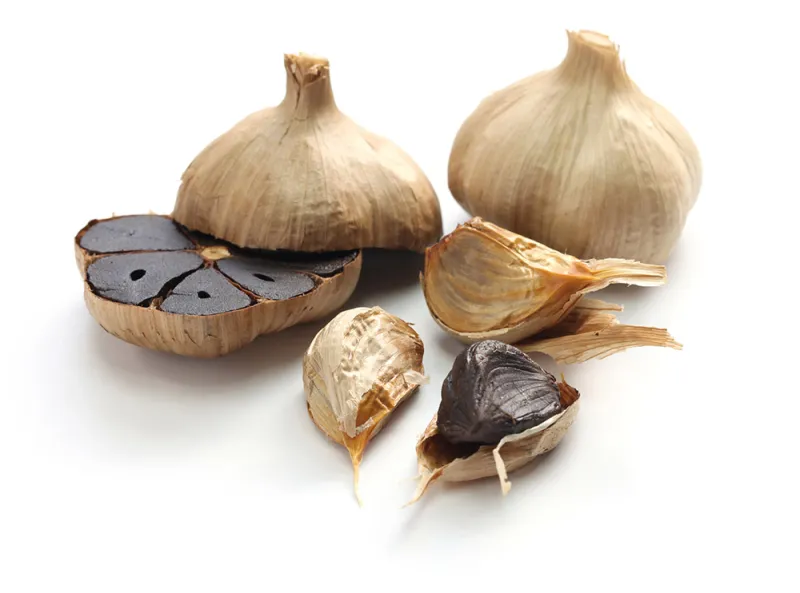Anyone looking to improve their overall health should first look to support their immune system. If you are trying to bolster you immune system, it is important to understand the things that affect it and how you can change them.
Learn about the immune system, how nutrition affects it, and what steps you can take to support your health.
The Historical Link Between Nutrition and Immunity
Think back to the 1918 Spanish flu pandemic, a grim reminder of how vital nutrition is for our immune defenses. People were grappling with nutritional deficiencies at that time because World War I had wreaked havoc on food supplies.
The result? A compromised immunity across vast populations and an estimated 50 to 100 million lives lost.
The Impact of Nutritional Deficiencies on Immune Health
Our body’s fortress against illness–the immune system–relies heavily on nutrients. Your immune cells can’t defend you properly without enough nutrients.
When nations struggled to feed their citizens adequately during the war, it wasn’t just hunger they battled but also increased vulnerability to infections like influenza.
Essential Nutrients for a Robust Immune System
Your immune system is responsible for warding off viruses and bacteria. Without proper nutrition, the immune system struggles to complete this task.
The Protective Role of Essential Fatty Acids
Fats often get a bad rap, but they are crucial for your immune health.
Without enough essential fatty acids, our cellular walls are unable to form barriers against infection. This means that without enough fats, our immune system will struggle to function.

Vitamins That Stimulate White Blood Cell Production
Vitamin C is like the hype man for white blood cells. When vitamin C hits the bloodstream, white blood cells are better able to defend against possible threats to the immune system.
Vitamin D as an Immune Modulator
If vitamin C helps with white blood cells, think of vitamin D as another assistant for them.
This nutrient can help keep them balanced and focused on targeting real threats to your health. It helps regulate those T-cells so they know what they should attack.
Lifestyle Factors Affecting Immune Strength
Have you ever noticed how some people never seem to catch a cold? They might be onto something with their lifestyle choices. Believe it or not, simple every day habits can increase the body’s ability to prevent illness.
The Link Between Stress and Illness
It turns out that stress takes a toll on the immune system. When stressed, our bodies pump out cortisol, which is excellent for fight-or-flight situations but not so much for fighting germs.
It has been shown time and again that high-stress levels can weaken the immune system, making us more susceptible to infections.
Incorporating regular exercise into your routine is a great way to prevent stress from becoming overwhelming and harming your immune system.
Sleep’s Role in Immune Function
Getting enough sleep is one of the best ways you can ensure you stay healthy.
Sleep deprivation leaves you more vulnerable to pathogens because the immune system will not operate well without downtime.
Natural Antivirals for Immune Support
Supporting your immune system is important, and there are a few natural remedies you can use to ensure you stay healthy.

Garlic’s Multifaceted Antiviral Effects
Including garlic in your diet could be a game-changer regarding immunity. It’s like nature’s own antivirus program, highly potent in knocking out virus particles before they can wreak havoc.
The abundant sulfur-containing compounds in garlic give it superpowers to combat different kinds of microbes. When you chop or crush those cloves, allicin springs into action–a compound known for putting up quite the fight against viral infections.
Colloidal Silver as an Oxygen-Depriving Antimicrobial
Then there’s colloidal silver, which can help by suffocating harmful microorganisms, cutting off their oxygen supply. This old-school remedy is showing significant potency against unwelcome invaders.
However, before incorporating any remedies into your lifestyle, you should first consult a medical professional.
Olive Leaf for Enhanced Immunity
Last but not least on our list is olive leaf extract.
Olive leaf works undercover to bolster your body’s defenses; its protective properties serve both offensive and defensive roles within your internal fortress.
Trace Minerals and Their Role in Immunity
Zinc might not get the same spotlight as some big-name vitamins, but let’s be honest–it’s like the quiet genius of the immune system.
This mighty mineral protects us against viruses by boosting T cells, those tricky little defenders that tell invaders they’re messing with the wrong crowd.
Dietary Sources of Immune-Boosting Nutrients
Ever wonder why some folks sail through flu season without a sniffle? Their secret might be on their plate. Vitamin A helps keep skin and tissues in your mouth, stomach, intestines, and respiratory system healthy.
If you aim to armor up with vitamin A, consuming more carrots and squash is ideal. Greens like spinach and kale are good sources, too.
Moving onto vitamin C , which helps to stimulate white blood cell production. Bell peppers are one of the best sources of this nutrient.
Elevating Immune Resilience: Essential Diet Tips to Boost Your Immune System Naturally, Enhanced by the Benefits of Turmeric Tea
Elevating your immune system naturally involves incorporating essential diet tips that fortify your body’s defenses, complemented by the exceptional benefit of turmeric tea.
Focus on a nutrient-rich diet featuring fruits, vegetables, and lean proteins to provide the vitamins and antioxidants crucial for immune health.
Additionally, embrace the anti-inflammatory prowess of turmeric tea, enriched with curcumin, renowned for its immune-boosting properties.
This dynamic combination of a wholesome diet and the soothing infusion of turmeric tea creates a powerful synergy, fostering optimal immune resilience and contributing to overall well-being.
Conclusion
Supporting your immune system is fundamental to improving overall health. Historical events, like the 1918 Spanish flu pandemic, highlight the crucial role of nutrition in immune function.
Essential nutrients such as fatty acids, vitamins C and D, and minerals like zinc are vital for maintaining a robust immune response. Lifestyle choices, including stress management, regular exercise, and adequate sleep, further strengthen immune defenses.
Natural remedies, such as garlic, colloidal silver, and olive leaf extract, can provide additional support, but should be used under medical guidance.
Complementing a nutrient-rich diet with the anti-inflammatory benefits of turmeric tea can enhance immune resilience.
Prioritizing these strategies helps create a strong, responsive immune system, promoting long-term health and well-being. For personalized advice, consulting with a healthcare professional is recommended.








